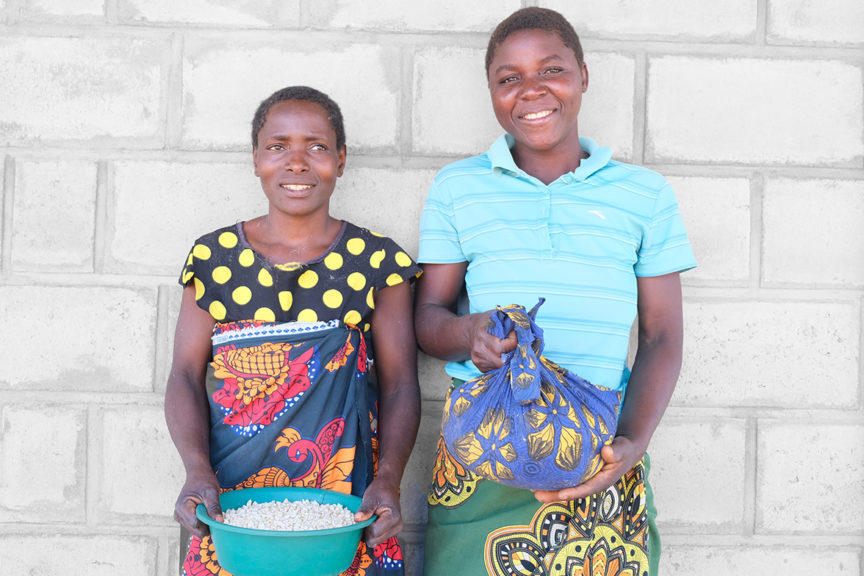
The Maize Milling Centre is operational.
The Brook Family Maize Milling Centre opened, and the first villagers arrived to test it. Not only will the maize mill provide Kuwala with a means to produce flour to feed over 150 students, staff and workers, but it will provide much-needed relief to many surrounding communities that already support Kuwala.
The maize mill is a significant benefit to the community.
The Brook Family Maize Milling Centre opened, and the first villagers arrived to test it. The maize mill will provide Kuwala with a means to produce flour to feed over 150 students, staff and workers, and it will provide much-needed relief to many surrounding communities. It will considerably improve their lifestyle and continue building a community for Kuwala. The cobs grown at the Farm are good; the first milling produced lovely flour. Villagers are seeing the positive changes Kuwala is exposing in the area; the beautiful environment, the thoughtful farming practices and the care and development of the Campus. It is beginning to have a ripple effect throughout the region. Villagers are planting trees, committed to their daughters’ education and ability to create change in Malawi.
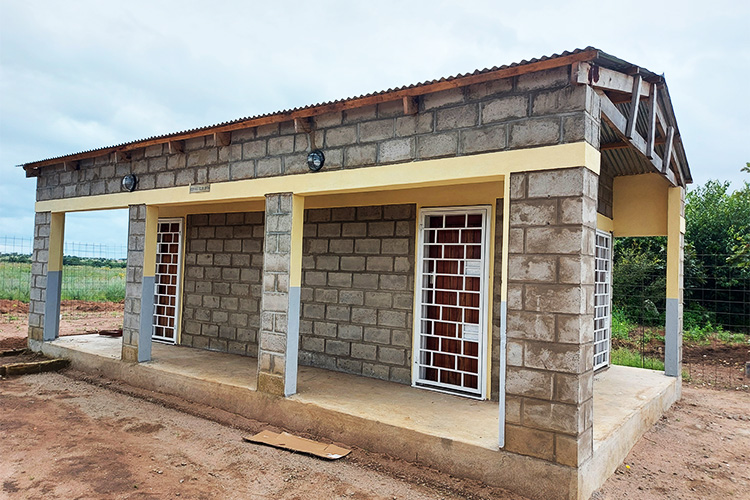
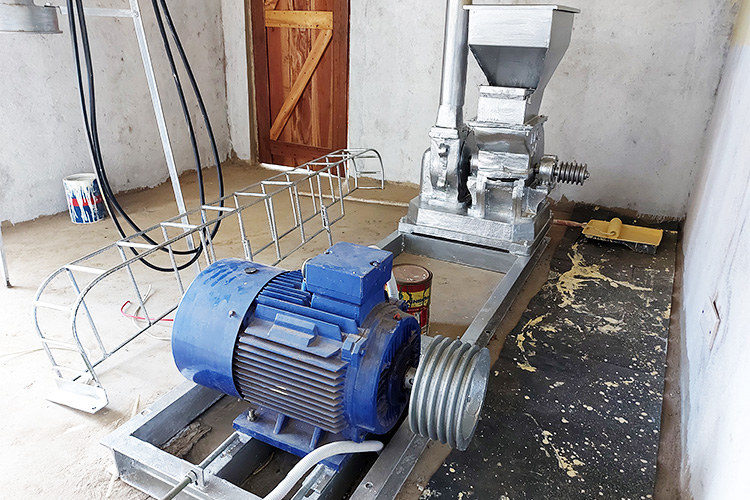
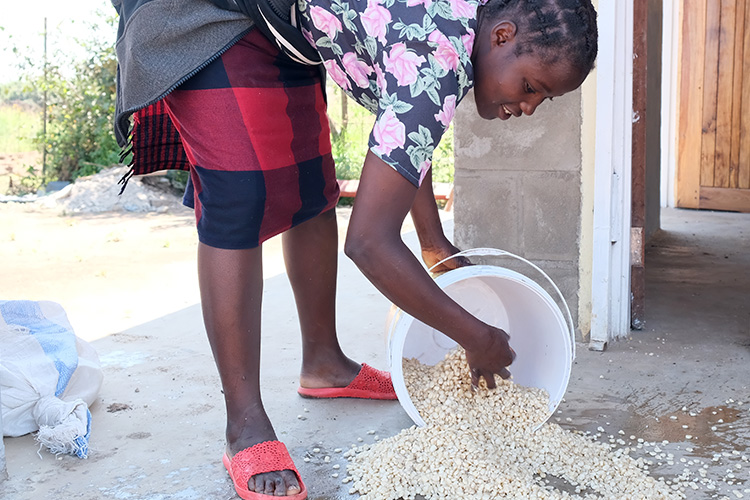
In Malawi, maize is also the main cereal crop. Maize milling is a multi-step process. First, family members in the village remove the husks from the cobs of corn. The corn then gets taken to the mill and goes through the first process that separates the bran from the kernel. The result is called polished grain. The by-product is maize bran, which usually goes to waste, but Kuwala feeds it into the biogas pits. The dung from the animals, the husks, and maize bran will be used in the biogas chambers to produce the gas for the stoves in the kitchen. The output is slurry and is spread as fertilizer.
Outside the milling house, the grain kernels are soaked in a trough. Two minutes of soaking is enough time to prepare the polished kernel; it can then be ground directly into flour in the second room of the mill house. This flour is called an express meal. For tastier flour, the polished kernel returns home to be soaked for 2-3 days, dried on yarn for 5 hours and then taken back for milling. This flour is called a ‘cream of maize’ and gets stored in large sacs. The maize mill project is a massive accomplishment for Kuwala.
The maize mill is a huge time saver for the village women. So often, they travel 10kms or more, carrying heavy loads of corn balanced on their heads, only to find out the mill is not working or the power is out. Now with the Campus mill in operation, the women don’t have to walk kilometres to grind their maize. It’s a win-win, and the Campus is happy to make village life easier.
Earth day 2023.
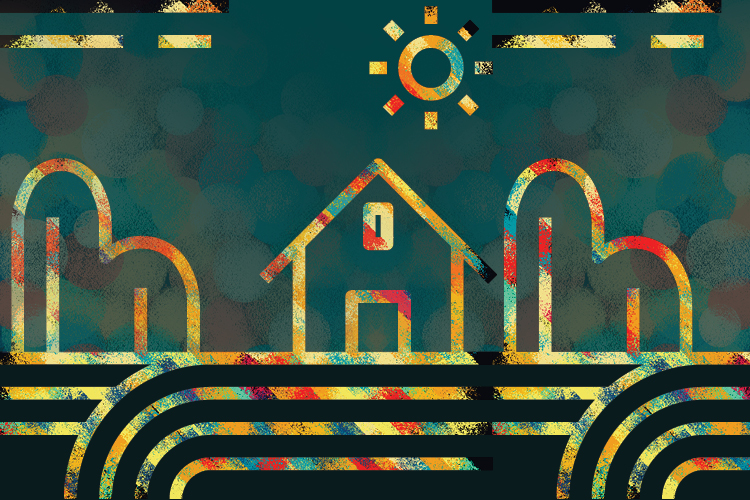
Earth Day is celebrated globally on April 22 yearly to raise awareness about environmental issues and promote sustainability. Malawi is one of the countries that celebrate Earth Day. Various activities include:
- Tree planting.
- Clean-up campaigns.
- Environmental education programs.
- Awareness-raising events on climate change and its ecological effects.
Non-governmental organizations, schools, and other community-based groups often lead these activities. The effects of climate change in Malawi are acute and devastating, particularly in rural areas where most of the population relies on agriculture for their livelihoods. In addition, the country has experienced severe droughts and floods in recent years, leading to food insecurity, water scarcity, and soil erosion. These environmental challenges have also increased the spread of waterborne diseases such as cholera and typhoid fever, significantly threatening public health.
Additionally, climate change has also had an impact on Malawi’s wildlife and ecosystems. Many species of animals and plants are at risk of extinction due to habitat loss, degradation, and fragmentation caused by climate change and other human activities.
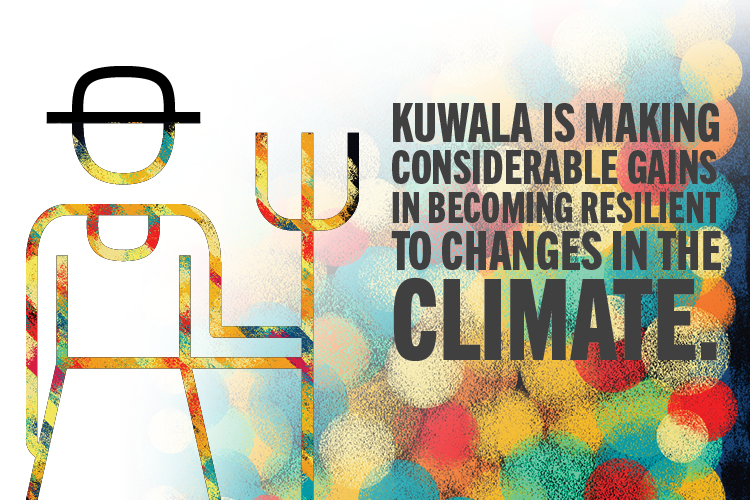
Kuwala is making considerable gains in becoming resilient to these changes in climate. For example, crops are now planted in rows of raised beds with trenches on either side to capture, retain and direct the rainwater to be absorbed in the base of the bed and not wash away the plantings. In addition, on every side of a section of plantings, rows of trees are planted in mounds with circular trenching, which, when mature, will provide shelter to protect the Farm from wind, intense sun and erosion caused by the rainy season where flooding occurs.
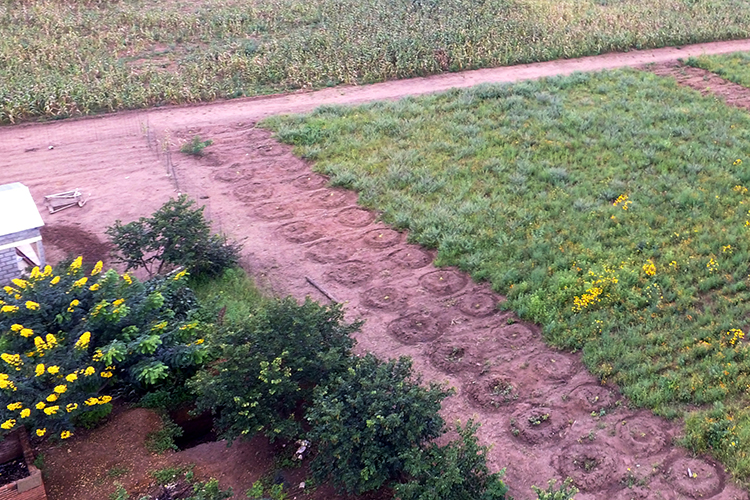
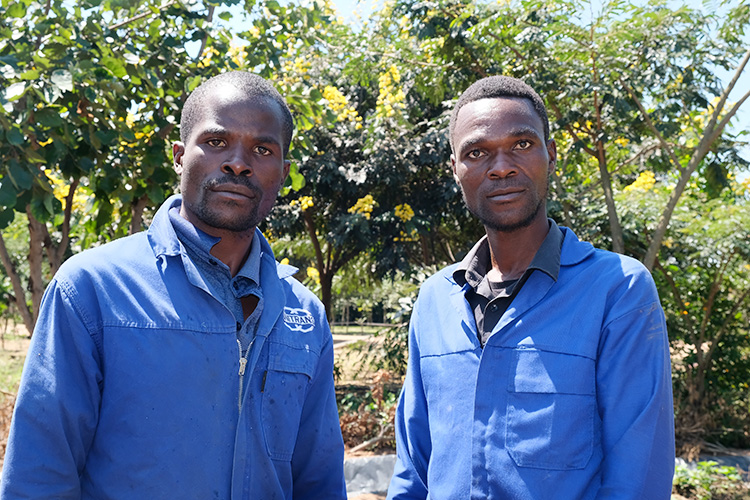
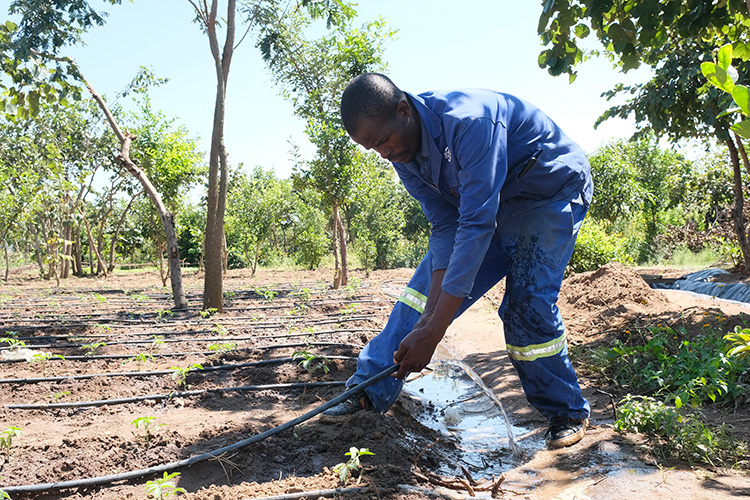
Green energy initiative.
Biogas installation is almost complete and ready to replace natural gas in the kitchen.
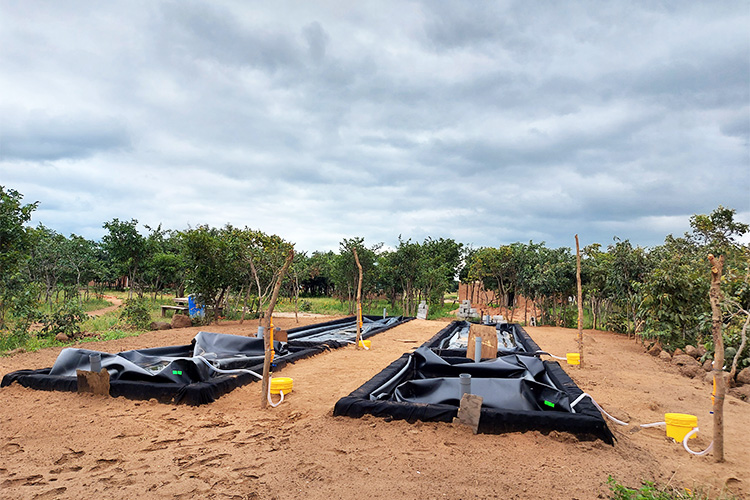
A biogas installation consists of a sealed container, known as a biogas digester, where organic waste such as animal dung or kitchen waste is placed. Bacteria break down the waste in an oxygen-free environment, producing methane gas as a by-product. The gas is then piped to Kuwala’s commercial kitchen, which is used for cooking. In addition, the leftover material, known as digestate, can be used as fertilizer, improving soil quality and crop yield. This sustainable technology has several benefits, including reducing greenhouse gas emissions, improving public health by reducing indoor air pollution from traditional cooking methods, and providing a reliable energy source for households off the grid.
Student profile.
Meet Evelyn, In her own words…
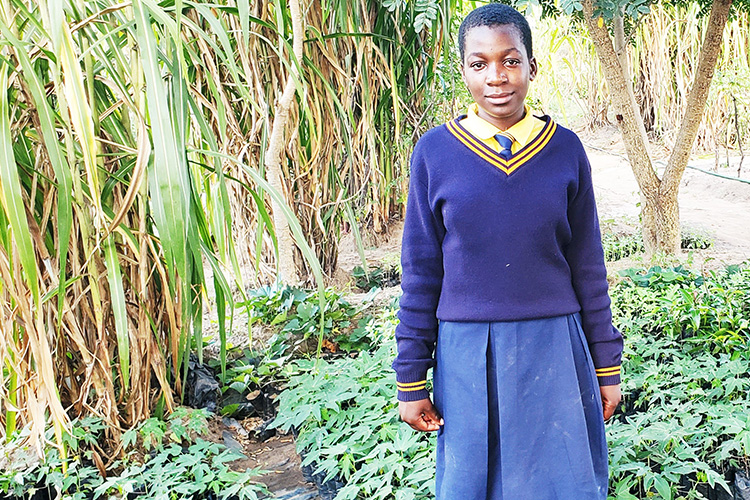
I am in Form 1 at Kuwala Christian Girls Secondary School. In my family, we are three children, and I am the last born in my family. My parents, they do find money through farming. I am excited to get an education at Kuwala Christian Girls Secondary School because my parents cannot pay school fees for me at another school, and I want to be learning at a girls’ school.
My favourite subjects at Kuwala are English, chemistry, physics, biology, history, mathematics and geography. I enjoy living at Kuwala because there is a good environment and good education. There are so many other activities I enjoy at Kuwala. Some include playing games such as football, netball, going for entertainment, and doing manual work. In my past time, when I am not in classes, I enjoy studying, reading novels and playing different games. Thank you for allowing me to go to school. Thank you for praying for me and my family.
Digital Skills for Life is the 2023 International Girls in ICT Day theme.
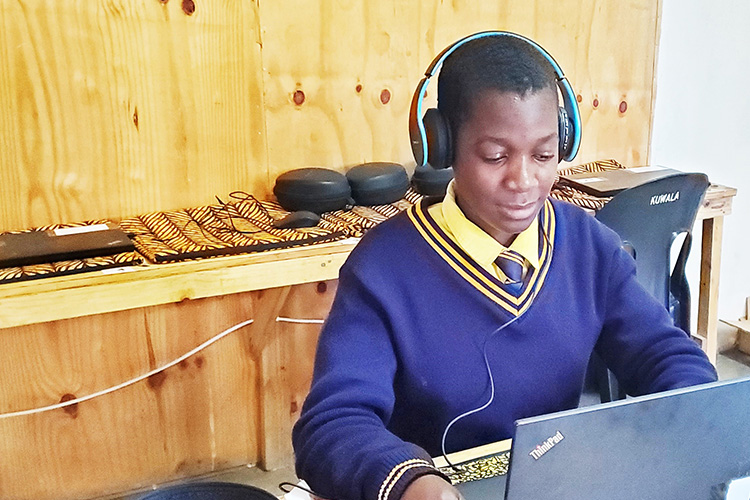
April 27 marks an opportunity to empower girls to encourage them to thrive in science, technology, engineering and mathematics. Kuwala has adopted the one computer per student goal and is working towards completing the first fully equipped science lab. In addition, solar power is en route to the school. It will educate and model how Kuwala will become more self-sufficient and reduce its dependency on the National Grid, where power outages are continuous and troublesome. Watch for more exciting stories to come.
Education update.
The Form 2 and 4 students who stayed at Kuwala to study for the National exams feel very prepared. The girls are encouraged and excited to see the maize mill, biogas and farming operations expand at Kuwala. They are learning in real life, seeing the technology and application from these projects. What they are learning from books and physics and chemistry research is being applied in real-time, right on Campus. They are learning about agriculture, putting their hands on the ground. They see the results of only a few short years of tree planting; the trees are as tall as the buildings, and the orchards produce fruit. Also, the students witness the cycle of food waste turning into something useful: bio-fuel and fertilizer. Finally, everyone eats and shares with others in their community.
Download the print-friendly version of this newsletter with additional content.
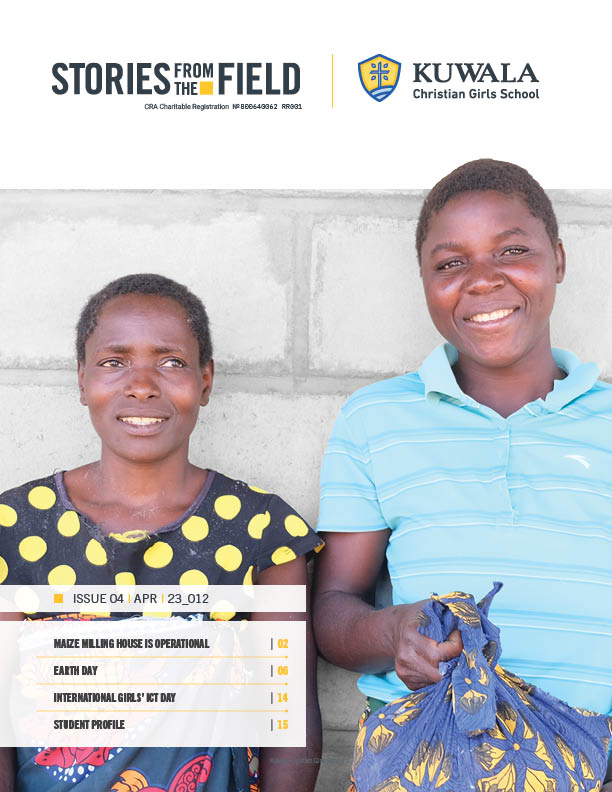
https://www.kuwala.org/wp-content/uploads/2023/04/Kuwawa_Newsletter_April_2023-1.pdf
